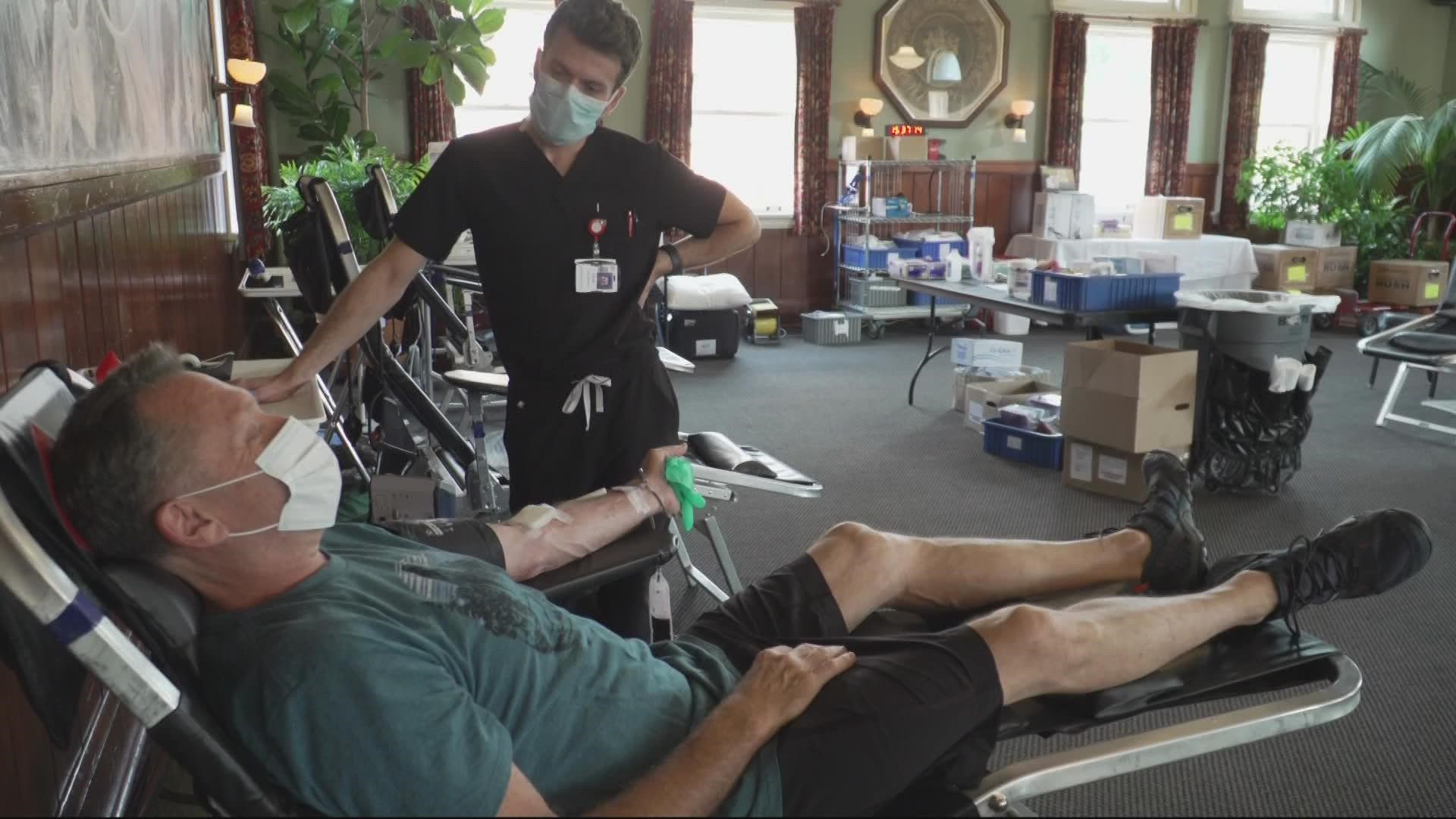PORTLAND, Ore. — American Red Cross and Bloodworks NW say a national blood shortage is impacting patients in the Pacific Northwest. Dr. David Glidden with Legacy Health in Portland described the situation as dire in many hospitals.
"Worst of the worst," Glidden said.
Blood donations are down across the entire country. For some patients, blood transfusions make a life-or-death difference.
"When it feels like [the situation is] getting better, it really isn't," said Angel Montes with the Red Cross.
Montes said hospital demand for blood is up 12% compared to this time last year. This comes as hospitals return to elective surgeries and trauma cases increase during warmer months.
Although elective surgeries have declined during an uptick in COVID patients, the Red Cross and Bloodworks NW say more blood is being used than donated.
Montes said during the pandemic, many sponsoring businesses, colleges and organizations ceased hosting blood drives. With the delta variant driving a surge of COVID-19 cases, he is worried that trend will continue.
"Will they be able to host blood drives onsite or not?" Montes wondered.
The American Red Cross says with proper protocols, blood drives are safe. It urged community groups to organize and host blood drives using its signup page.
"We're in a tough spot right now," said Vicki Finson, executive vice president of Bloodworks NW. "This is one of the worst and most prolonged shortages I've seen in my blood-banking career."
Finson said her organization collects blood donations 364 days a year, which is necessary to keep up with blood's 42-day shelf life. Platelets last even shorter, between five and seven days.
Bloodworks NW says it is taking appointments at its locations across the Pacific Northwest to help its service area, which spans Bellingham to Roseburg. It has also hosted pop-up donation events in recreational places, such as McMinemins Edgefield.
In addition to events, it's collaborating with KEXP, a radio station in Seattle. Host Cheryl Waters shared her story of surviving cancer treatment with the help of necessary blood transfusions. In a promotional video clip, she said she now donates blood regularly to help others.
"I might've died if I hadn't had a blood transfusion," Waters said. "When I needed it, it was there."
Bloodworks NW and KEXP have a goal of collecting blood donations from 10,000 people during a September campaign.
The shortage is having an immediate impact on decisions at local hospitals.
"We are actually still able to provide blood when needed," Glidden said of the Legacy Health system. "But what we're living with now is a complete elimination of a cushion that we have been accustomed to for so long."
Glidden explained providers are having to budget the limited blood supply. Enough blood is available for trauma and emergencies, but providers are making tough choices to delay other surgeries that would later require blood transfusions.
An additional challenge is donation eligibility.
According to the American Red Cross, only about 38% of the population is allowed to donate.
However, both the Red Cross and Bloodworks NW urge people to reach out and confirm eligibility before writing themselves off.
"There are people who really really need it," said Dr. Kirsten Alcorn of Bloodworks NW.
Her organization has pushed the U.S. Food and Drug Administration (FDA) for years to reassess blood donation restrictions on certain populations.
That includes men who have sex with men (MSM), who since the AIDS crisis in the 1980s have been barred from donating blood if they have had sexual contact within the previous year.
During the pandemic, with donations plummeting, the FDA followed the lead of research in other countries to allow MSM to donate blood after three months of no sexual contact.
"Was not causing decreased safety," explained Alcorn. "We would not like to unnecessarily exclude anybody. We have to use safety as our guiding factor."
Bloodworks NW continues to urge the FDA to make that adjustment permanent, as well as adjust blood donation questionnaires to be more inclusive.
In the broader picture, these doctors and organizations say donating blood is a rewarding act of community that saves lives. Dr. Glidden warned the need will likely continue.
"We expect this shortage to last in the order of months," he said.

